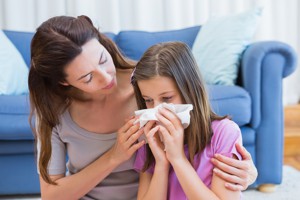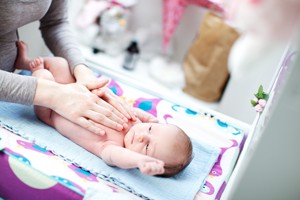 It is heart-breaking watching your little one suffer with a cold, and, unfortunately, babies and children can expect to catch from around 8 to 12 colds each year, compared to adults who have between 2 and 4. Furthermore, if your baby or toddler has just started at a childcare placement, then the chances are that you will spend the next few months wiping her nose and listening to her cough as she comes into contact with lots of viruses.
It is heart-breaking watching your little one suffer with a cold, and, unfortunately, babies and children can expect to catch from around 8 to 12 colds each year, compared to adults who have between 2 and 4. Furthermore, if your baby or toddler has just started at a childcare placement, then the chances are that you will spend the next few months wiping her nose and listening to her cough as she comes into contact with lots of viruses.
Children under six cannot have cold remedies as these can have strong side effects, so you might feel a bit helpless with regards to easing your little one’s suffering, but there are steps that you can take to help your baby or young child through their cold.
Do I Need To Take My Child To See The Doctor?
Generally, you do not need to take your child to see a Doctor when they are suffering from a cold. Colds are caused by viruses (not bacteria), so a doctor will not prescribe antibiotics as they will have no effect. Instead, colds are best treated at home.
However, you will need to take your child to see a doctor if any of the following applies:
- Your baby is younger than six months and has a temperature above 39 degrees centigrade, or your baby is younger than three months and has a temperature above 38 degrees centigrade
- Your child tells you she has earache, or your baby is rubbing his ear a lot
- Your child tells you she has a persistent sore throat. In babies, a sore throat may be indicated by excessive drooling and reluctance in swallowing
- Your child has difficulty breathing, has chest pain, or is coughing up blood or mucus that is yellow, green, or brown
- Your child shows no improvement in symptoms after three weeks
How Can I Help My Child During A Cold?
 Do not give your child any over the counter cold remedies such as decongestant tablets or Lemsip, as these can have serious side effects for children under the age of six years.
Do not give your child any over the counter cold remedies such as decongestant tablets or Lemsip, as these can have serious side effects for children under the age of six years.
If your child seems to be in pain or has a fever, you can offer them some infant paracetamol from two months old (providing your baby was born at full term pregnancy and she weighs more than 4kg).
Offer your child plenty of fluids, as colds can lead to dehydration.
Your baby will not learn how to blow his nose until he is around two-years old. You can buy nasal aspirators that use suction to clear a baby’s nose. However, many babies do not like this and may quickly learn to wriggle away as soon as they see one. You can use a vapour rub on your child’s chest and back to help your child breathe more easily. You can find a mild version that is safe to use from three months onwards.
If your baby is younger than three-months, then steam makes a great alternative to vapour rubs. Sit with your baby in the bathroom with the doors and windows closed and put the shower on maximum heat and power (Do not put your baby in the shower). This will generate lots of steam that will help to clear your baby’s nasal passages.
Encourage your child to have lots of rest. Consider having a DVD and duvet day with your child to encourage them to relax and get the rest they need in order for their bodies to have the energy to fight off the infection. For babies, make sure they get their regular naps, and discourage visitors if you can to ensure that your baby’s sleep is not disrupted.
